Humans
Sign up for our newsletter
We summarize the week's scientific breakthroughs every Thursday.
-
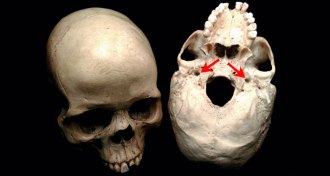 Humans
HumansBrain’s blood appetite grew faster than its size
Over evolutionary time, the energy demands of hominid brains increased faster than their volume, a new study finds.
-
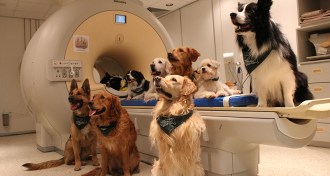 Animals
AnimalsDog brains divide language tasks much like humans do
Dogs understand what we say separately from how we say it.
-
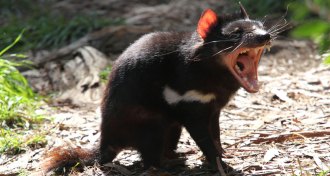 Health & Medicine
Health & MedicineTasmanian devils evolve resistance to contagious cancer
Tasmanian devils are evolving resistance to a deadly contagious cancer.
-
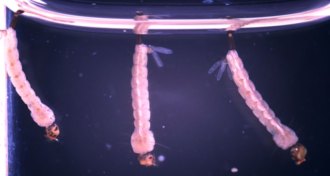 Health & Medicine
Health & MedicineMosquito moms can pass Zika to offspring
In the lab, Zika virus can pass from a female mosquito to her eggs, suggesting how infections can flare up again after adult insects dwindle.
By Susan Milius -
 Anthropology
AnthropologyFossil autopsy claims Lucy fell from tree
A contested study suggests a famous fossil ancestor plunged to her death.
By Bruce Bower -
 Health & Medicine
Health & MedicineClean inside those bagpipes — and trumpets and clarinets
Bagpipes’ moist interiors may be the perfect breeding ground for yeasts and molds.
By Meghan Rosen -
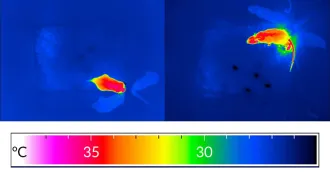 Neuroscience
NeuroscienceCool nerve cells help mice beat heat
A new study pinpoints fever-busting cells in mice’s brains.
-
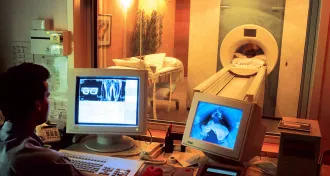 Neuroscience
NeuroscienceComputers refine epilepsy treatment
Surgeons harnessed computers in 1966 to pinpoint source of epilepsy in the brain.
-
 Tech
TechReaders respond to terrorism’s roots
Readers respond to the July 9, 2016, issue of Science News with questions on terrorism, dog evolution and more.
-
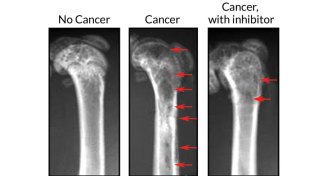 Health & Medicine
Health & MedicineWeapon of bone destruction identified
Scientists discover myeloma’s secret bone-destroying messenger.
-
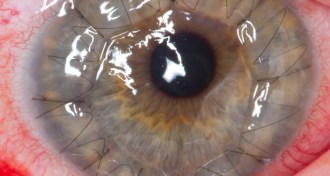 Health & Medicine
Health & MedicineCornea donation may have sex bias
Women receiving a corneal transplant do better when their donors are female, new research finds.
By Amber Dance -
 Health & Medicine
Health & MedicineTired parents don’t always follow sleep guidelines for babies
Night videos revealed parents putting their babies to bed in unsafe environments.